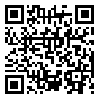Volume 24, Issue 6 (9-2025)
JRUMS 2025, 24(6): 575-578 |
Back to browse issues page
Ethics code: ندارد
Download citation:
BibTeX | RIS | EndNote | Medlars | ProCite | Reference Manager | RefWorks
Send citation to:



BibTeX | RIS | EndNote | Medlars | ProCite | Reference Manager | RefWorks
Send citation to:
Masoudi F. Health Diplomacy: A Scientific Responsibility in Addressing Military Crises. JRUMS 2025; 24 (6) :575-578
URL: http://journal.rums.ac.ir/article-1-7769-en.html
URL: http://journal.rums.ac.ir/article-1-7769-en.html
Full-Text [PDF 197 kb]
(226 Downloads)
| Abstract (HTML) (791 Views)
Full-Text: (318 Views)
Health Diplomacy: A Scientific Responsibility in Addressing Military Crises
Fatemeh Masoudi [1]
Received: 29/06/25 Sent for Revision: 02/07/25 Received Revised Manuscript: 07/07/25 Accepted: 08/07/25
The recent attacks by the Israeli regime on Iranian territory, which targeted critical health infrastructure including hospitals, health centers, ambulances, and emergency personnel, constitute a clear violation of the fundamental principle that health is a basic human right. This article, adopting a critical and responsible stance, calls for a more active role by scientific journals in documenting such atrocities, supporting health systems, and strengthening health diplomacy in times of crisis. Proposed actions include publishing a special issue on “Health in Armed Conflicts,” inviting experts from relevant fields to contribute articles, and preparing an illuminating editorial in defense of the right to health.
Keywords: Health Diplomacy, Military Attacks, Health in War, Right to Health
Authors’ contributions:
- Conceptualization: Fatameh Masoudi
- Methodology: Fatameh Masoudi
- Data collection: Fatameh Masoudi
- Formal analysis: Fatameh Masoudi
- Supervision: Fatameh Masoudi
- Project administration: Fatameh Masoudi
- Writing – original draft: Fatameh Masoudi
- Writing – review & editing: Fatameh Masoudi
Citation: Masoudi F. Health Diplomacy: A Scientific Responsibility in Addressing Military Crises. J Rafsanjan Univ Med Sci 2025; 24 (6): 575-8. [Farsi]
(Corresponding Author) Tel: (025) 36122248, E-mail: f.masodi@muq.ac.ir
Fatemeh Masoudi [1]
Received: 29/06/25 Sent for Revision: 02/07/25 Received Revised Manuscript: 07/07/25 Accepted: 08/07/25
The recent attacks by the Israeli regime on Iranian territory, which targeted critical health infrastructure including hospitals, health centers, ambulances, and emergency personnel, constitute a clear violation of the fundamental principle that health is a basic human right. This article, adopting a critical and responsible stance, calls for a more active role by scientific journals in documenting such atrocities, supporting health systems, and strengthening health diplomacy in times of crisis. Proposed actions include publishing a special issue on “Health in Armed Conflicts,” inviting experts from relevant fields to contribute articles, and preparing an illuminating editorial in defense of the right to health.
Keywords: Health Diplomacy, Military Attacks, Health in War, Right to Health
Authors’ contributions:
- Conceptualization: Fatameh Masoudi
- Methodology: Fatameh Masoudi
- Data collection: Fatameh Masoudi
- Formal analysis: Fatameh Masoudi
- Supervision: Fatameh Masoudi
- Project administration: Fatameh Masoudi
- Writing – original draft: Fatameh Masoudi
- Writing – review & editing: Fatameh Masoudi
Citation: Masoudi F. Health Diplomacy: A Scientific Responsibility in Addressing Military Crises. J Rafsanjan Univ Med Sci 2025; 24 (6): 575-8. [Farsi]
[1]- MSc in Medical Library and Information Science, Clinical Research Development Center, Shahid Beheshti Hospital, Qom University of Medical Sciences, Qom, Iran, ORCID: 0000-0002-5167-3825
(Corresponding Author) Tel: (025) 36122248, E-mail: f.masodi@muq.ac.ir
Type of Study: Short Report |
Subject:
Editorial
Received: 2025/06/25 | Accepted: 2025/07/8 | Published: 2025/09/19
Received: 2025/06/25 | Accepted: 2025/07/8 | Published: 2025/09/19
References
1. Kickbusch I, Liu A. Global health diplomacy—reconstructing power and governance. Lancet 2022;399(10341):2156–66.
2. Rubenstein LS, Bittle MD. Responsibility for protection of medical workers and facilities in armed conflict. Lancet 2010;375(9711):329–40.
3. Hameed MA, Rahman MM, Khanam R. The health consequences of civil wars: evidence from Afghanistan. BMC Public Health 2023;23:154.
4. Fouad FM, Sparrow A, Tarakji A, Alameddine M, El-Jardali F, Coutts AP, et al. Health workers and the weaponisation of health care in Syria: a preliminary inquiry for The Lancet–American University of Beirut Commission on Syria. Lancet 2017;390(10111):2516–26.
5. Conley B, de Waal A. The purposes of starvation: historical and contemporary uses. J Int Crim Justice 2019;17(4):699–722.
6. Berwick DM. The moral determinants of health. JAMA 2020;324(3):225–6.
7. Iran documents Israeli attacks on medical personnel. Tasnim News Agency 2025 Jul 12 [cited 2025 Sep 19]. Available from: https://www.tasnimnews.com/ en/news/2025/07/12/3352741.
8. Howard S. Hospitals are targeted and destroyed as Israel-Iran war hits healthcare. BMJ 2025; 389: r1320
9.
Send email to the article author
| Rights and permissions | |
 |
This work is licensed under a Creative Commons Attribution-NonCommercial 4.0 International License. |







